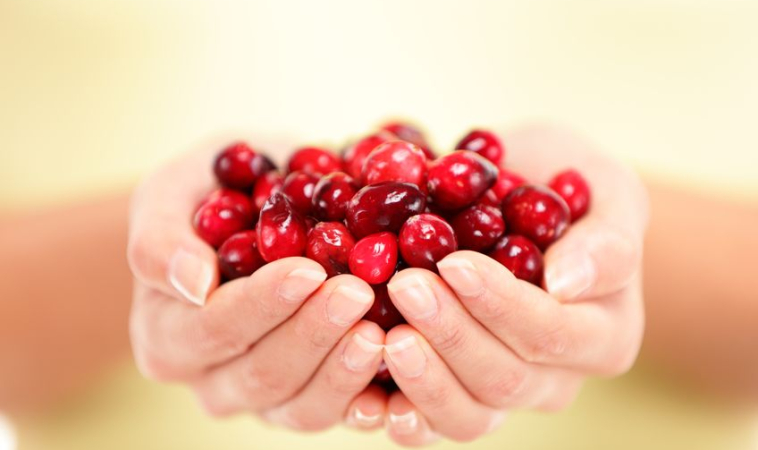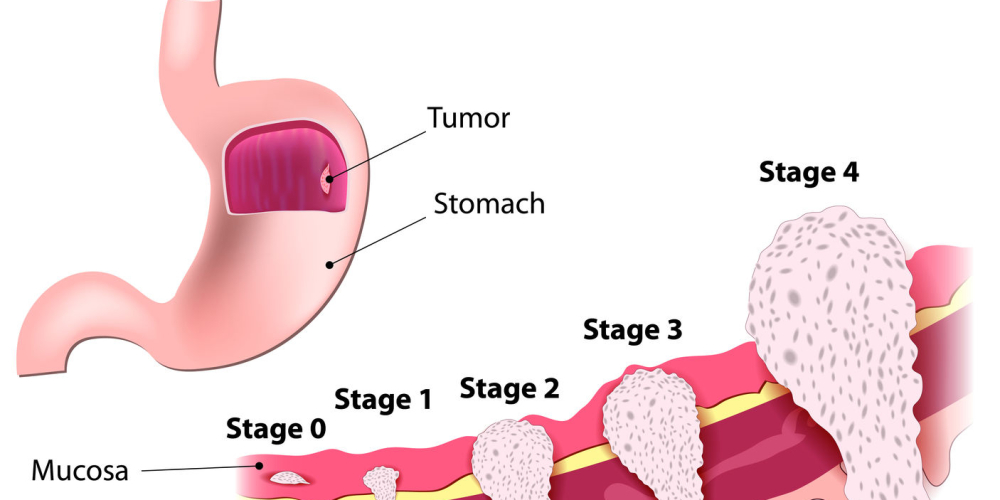Click the arrow to go to the next slide

1. Cranberry extracts inhibit cancer cell growth
A partial list of cancer types impacted by cranberry extracts include breast, colon, prostate, lung and certain forms of tumors.
2. Flavonols found in cranberries can inhibit cancer cells
Cranberries rank high in antioxidant quality and quantity because of their flavonoid content and phenolic acids. Extracts of cranberry rich in these compounds inhibit oxidative processes, which may contribute to the anti-tumor and anti-cancer activity.
3. Antibacterial properties of cranberries help fight gastric cancer
According to researchers, anti-bacterial adhesion studies demonstrated that cranberry constituents also inhibit adhesion of Helicobacter pylori, a major cause of gastric cancer, to human gastric mucus. A randomized, double-blind human trial found significantly lower levels of H. pylori infection in adults consuming cranberry juice.
4. Cranberry phytochemicals are anti-inflammatory
Studies are ongoing that look at the cranberry's anti-inflammatory properties. Anti-inflammatory substances are also considered in the context of biological activities that may influence chemoprevention, which makes cranberries extremely valuable in the treatment of certain cancers.
5. Dietary cranberry roles of proanthocyanidins coming to light
Studies reporting in vitro anti-proliferative activity of flavonoid-rich extracts from cranberry in oral, colon and breast cancer cell lines have shown proanthocyanidins, the simplest of flavanols, as contributing to stemming the growth of these cancer cells. Additionally, a proanthocyanidin fraction from whole cranberry fruit was seen to inhibit the growth of human large cell lung carcinoma, colon adenocarcinoma, and chronic myelogenous leukemia cells.
6. Cranberry triterpenoids can help halt cancer cell growth
Although ubiquitous to the plant kingdom, triterpenoids from cranberry peel contain substantial amounts of triterpenoids, an important source of anti-inflammatory, anti-proliferative, and pro-apoptotic compounds. Studies under way are looking at triterpenoids' use in treating colon, breast, prostate, and melanoma cancers.
Triterpenoids are found in a variety of fruit and plants, but cranberries have some of the highest concentration of them, according to medical research. Cranberry, cranberry cancer treatment, triterpenoids, colon cancer, breast cancer, prostate cancer, melanoma cancer. Is this potential better than some of the other flavonoids? We are going to have to wait for the research in humans to tell us.
There is a difference between prevention and treatment. This is what I say to cancer patients, so we know that having a good bionutrient diet is essential. As for the bioflavonoids, I am all for them. Whether they are going to be useful as a cancer treatment, rather than prevention, is still to be seen. [To determine if] they are going to be effective treatment, we are going to have to wait for the studies to show us.
Dr. Ian Bier, ND, PhD, LAc sees cancer patients at Human Nature Natural Health in Portsmouth, New Hampshire. He likes the health benefits of cranberries so much, he offers a recipe for his home made sauce on his blog, which can be accessed here: http://www.humannaturenaturalhealth.com/recipes/CranberrySauce.
“I think there is great potential there, but whenever we’re dealing with any research, especially cancer type stuff, there is a huge difference between (research looking at) cell culture, animal studies and human studies,” Dr. Bier said. “What I say to patients is if everything that worked in the laboratory worked that way in the human body, we’d have no diseases.
Dr. Bier said he isn’t certain about the all the anti-cancer claims specifically for cranberries other than urinary tract cancers.
“Cranberry or any berries have flavonoids, so a lot of these types of (benefits) are going to spread across any of the nutrient-rich berries. For example, we know blueberry helps the retina of the eyes, and cranberry we know about the urinary tract benefits.”
To learn more about cancer prevention, visit thecancersummit.com






















